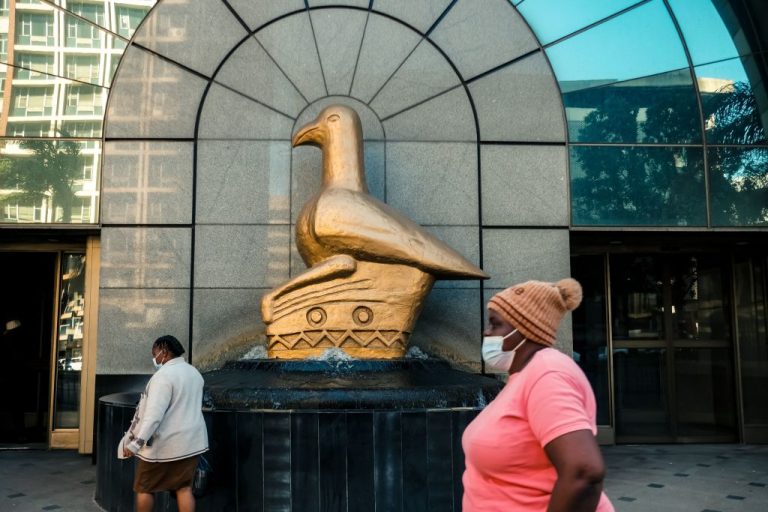The International Monetary Fund warned the African nation of Zimbabwe over a scheme the government recently launched that sees a new digital currency backed by gold bullion operating as legal tender alongside the Zimbabwe dollar.
An unnamed spokesperson for the IMF told Bloomberg “in an emailed response to questions” for an article published on May 9 that for Zimbabwe, “A careful assessment should be conducted to ensure the benefits from this measure outweigh the costs and potential risks including, for instance, macroeconomic and financial stability risks, legal and operational risks, governance risks, cost of forgone FX reserves” in regards to the scheme.
According to a May 7 article published by Financial Times, The Reserve Bank of Zimbabwe sold the digital currency system as a solution that will “expand the value-preserving instruments available in the economy.”
MORE ON GOLD
- Chinese Nationals Busted in Alleged Thailand Counterfeit Gold Scam
- Perth Mint Gold Doping Scandal With Shanghai Splits Silver Hairs
- Ancient African Secret to Purifying Gold with Glass
The scheme revolves around redemption of physical 1 ounce gold bullion coins issued by the RBZ in July of 2022, which are sold with no value in relation to the Zimbabwe dollar, according to numismatic website Numismag.
The coins are literally worth their weight in gold, numbered, accepted as legal tender, and can be deposited as collateral.
Success
You are now signed up for our newsletter
Success
Check your email to complete sign up
A May 9 article by Al Jazeera quoted the RBZ as explaining, “Holders of physical gold coins, at their discretion, will be able to exchange or convert, through the banking system…into gold-backed digital tokens.”
Zimbabwe produces about 35 tonnes of gold a year, worth about $2.25 billion USD based on an average recent market price of $2,000 per ounce, according to FT.
However, Al Jazeera notes that, based on state media reports, Zimbabwe only holds approximately 350 kilograms of gold as national reserves, worth approximately $22.8 million USD.
The digital currency is issued in response to remittance of gold coins, which must be vested for at least 180 days.
Economists interviewed by FT called the system “a sideshow” in light of the fact that the population at large in the country of almost 16 million is far too impoverished to afford gold bullion, especially when Zimbabwe is pushing triple digit inflation combined with an RBZ interest rate of 140 percent.
Nonetheless, the RBZ said that sales of gold coins through December of 2022 generated $2.5 billion Zimbabwe dollars ($7.75 million USD) and had “aided the dissipation of domestic inflationary pressures,” FT noted.
The IMF warning for Zimbabwe is notable. On the Fund’s website, it stated that on March 15 the Executive Board completed the annual consultation under Article IV, noting that the Article gives the IMF “a mandate to exercise surveillance over the economic, financial and exchange rate policies of its members in order to ensure the effective operation of the international monetary system.”
In September of 2022, the IMF declined to issue Zimbabwe any new loans “due to unsustainable debt and official external arrears,” the lender said, according to News24.
An October of 2022 article by Reuters stated that the country owes various international entities approximately $10 billion USD, which remains “mostly in arrears,” and subsequently has not received funding in more than two decades from outlets like the World Bank and the IMF.
Al Jazeera quoted former Zimbabwe Finance Minister Tendai Biti as calling the introduction of a digital currency “a psychopathic exercise in self-delusion.”
“The Zimbabwe dollar has failed because of the absence of trust in the regime. The digital currency will suffer the same brutal fate that the local dollar faces,” Biti added.

















